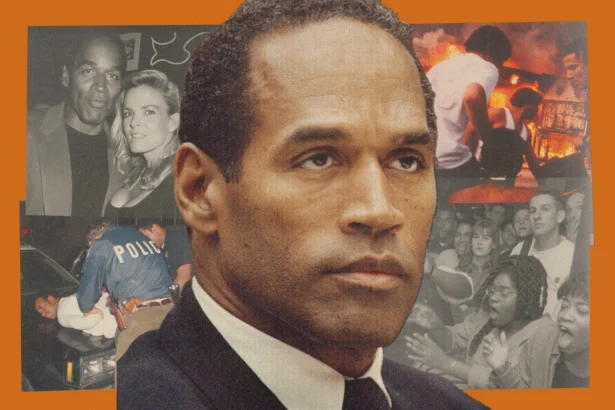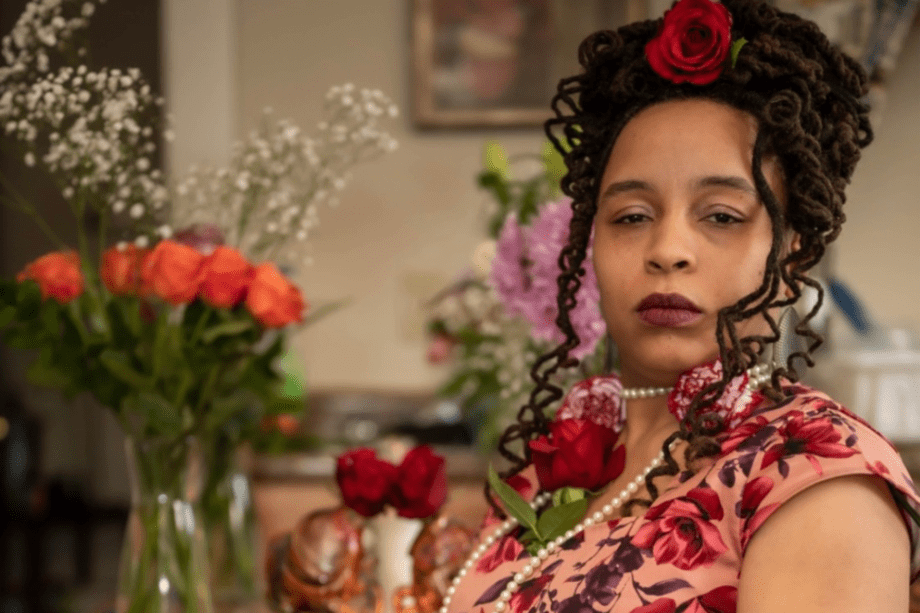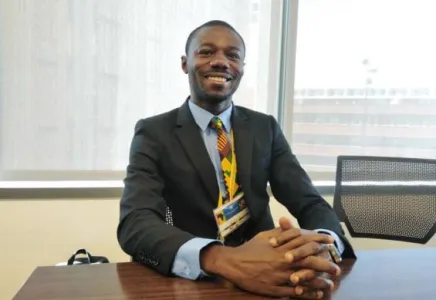As-told-to stories from Signal Cleveland
Aja Barrett, the founder of Jubilee Wellness Retreats, opens up about her journey with Signal Cleveland on the challenges she faced in accessing quality care, leading her to foster communal care for her own healing. This narrative is presented by Aja Barrett as recounted to Candice Wilder.
Aja Barrett’s quest for a healthcare provider who took her health issues seriously inspired her to explore her own solutions.
Barrett initiated hosting alternative healing and wellness gatherings for Black women in response to the struggles they encountered in accessing the necessary support and care.
She recently presented her concept, Jubilee Wellness Retreats, at Accelerate: Citizens Make Change, a competition by the Cleveland Leadership Center that offers residents the opportunity to secure funding to launch their unique ideas for community improvement.
These wellness retreats are envisioned as the catalyst for a broader vision, Jubilee House of Healing Wisdom, slated to be a hub and sanctuary for women seeking community and healing together. Her plan is to host the inaugural retreat this summer.
Barrett recounted her experiences with Signal Cleveland. Her words have been slightly edited for conciseness.
‘I needed someone to understand’
Recognizing a serious diagnosis and the need for assistance, I found myself trapped in a recurring cycle.
Establishing rapport with a doctor during a routine check-up, I would then have to complete paperwork just to be considered for care. The process of securing another appointment would linger for weeks, sometimes months.
Upon finally securing an appointment, I would face uncomfortable queries regarding my health insurance status and affordability of treatment. Subsequently, after enduring prolonged periods of silence, I would be informed that the doctor’s schedule was full or that I had been placed on a waiting list, propelling me back into my search.
I had to restart this ordeal three times within a year, leaving me drained. I simply yearned for someone to listen to me, to acknowledge my concerns and pain, and to comprehend the impact of my experiences as a Black woman.
The accumulation of discriminatory incidents within medical settings in Cleveland led me to reevaluate my willingness to visit hospitals. I reached a tipping point of frustration and anger.
That’s when I decided, “I will endeavor to heal myself.”
‘My first act of service’
I grew up in Cleveland in a single-parent household alongside three siblings. It’s now politically correct to use terms like “urban families with meager to moderate financial resources,” but I’ll be blunt: I was raised in poverty as a Black individual.
We resided in an area known as “The Rock” in the past, located on the city’s west side near 150th and Puritas Avenue.
Our abode was close to the airport, surrounded by neighbors grappling with substance abuse, alcohol addiction, or incarceration. That was my home from kindergarten through high school graduation.
I obtained an associate’s degree from Lakeland College and briefly attended Cleveland State University. My background isn’t one of formal education; I identify as an artist, an unconventional thinker, and a free spirit.
My life journey has been meandering, yet the places I’ve visited and people I’ve encountered have enriched me, imparting valuable insights about myself and the significance of community.
I often recount my earliest act of service as sharing a loaf of bread and a pack of baloney with my next-door neighbor at the age of 10.
In the ’80s and ’90s, the support systems available for economically disadvantaged individuals were scarce compared to today. Mutual reliance was crucial. Supporting each other through thick and thin was how community bonds were forged—an ethos that resonates deeply with me.
Over time, I collaborated with numerous organizers, advocates, and individuals deeply committed to the welfare of our city’s residents. I was involved in establishing literacy programs for youth and adults.
I closely collaborated with organizers like Pamela Hubbard, engaging in initiatives such as the Golden Ciphers program. Together with my community, we laid the groundwork for workshops addressing police conduct and social justice. Nevertheless, my focal point has consistently revolved around women and wellness.
Sister healing circles
The inaugural healing circle convened at my residence in the living room. I invited cousins, aunts, neighbors, and encouraged them to bring a companion. The promise of food and refreshments facilitated the gathering.
Each woman was asked to contribute something they had created for sharing within our circle. The table was adorned with an array of items crafted, produced, or sold by the women, including jewelry, soaps, candles, and art.
Laughter and tears flowed freely as women disclosed experiences they had never before shared, allowing themselves to be vulnerable in a setting understood only by us. Although not everyone was acquainted, the ambiance exuded warmth, safety, and solace.
That evening, twelve women graced my home. Originally slated for a two-hour duration from 6 to 8 p.m., our healing circle persisted until 3 a.m. as I recognized the profound need among some attendees for such an outlet. Subsequently, the women expressed a desire for future gatherings, laying the foundation for hosting these sacred spaces.
‘I can be saved here’
Due to my demanding work schedule consuming 50 to 60 hours weekly over the past three years, I had to scale back my involvement in wellness activities. However, recent personal health challenges, including my diagnosis and the struggles faced by women close to me, reignited my passion for this cause.
How can I rekindle this mission?
Implementing lifestyle changes and committing to them was pivotal in my journey to self-healing. By fostering my own community and sister circle, I unearthed a profound revelation: I possess the capacity to heal.
Black women navigate a myriad of challenges, bearing the brunt of societal disparities across various realms—be it wage differentials, limited opportunities, inferior health prognoses, or inadequate attention in healthcare settings. This systemic neglect isn’t coincidental. It compels me to inquire, who bears the responsibility for rectifying these disparities?
Black women are deserving of opulence. When seeking healing, especially to address afflictions stemming from our environment, we warrant the utmost respect, consideration, and dignity.
My aspiration for Jubilee House of Healing Wisdom and Wellness Institute is to offer Black women a profound sanctuary. Attending my retreats, I envision them affirming, ‘My healing merits this experience.’ I want them to assert, ‘I am worthy of this care. I am deserving of this investment. My time is valuable here. Here, I can find salvation.’




